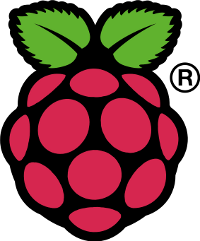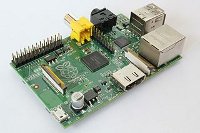The Raspberry Pi is a low-cost, small computer that runs an open-source operating system, and is designed to be easy to develop software for. This credit-card sized computer was developed by the Raspberry Pi Foundation, whose members include UK computing pioneer David Braben.
Bringing Back The Bedroom Coder Mentality
In the late 80s and early 90s, children grew up playing with their computers. You might think that they still do that today, but in the 80s and 90s, instead of simply playing computer games or posting on social networks, young people would code their own games, make demos, build their own machines, and spend a lot more time learning about the systems that entertain them.
Today, computers are in every home, but we are a generation of users, rather than creators, and Braben and the rest of the organization want to change that.
The Raspberry Pi For Schools
The Raspberry Pi is small, cheap and easy to use. Programming the Pi is easy, and you get instant feedback when you try something new. Unlike Windows based PCs, the Pi is almost impossible to break. If you do something wrong, simply restart it and it will be ready to go again.
Some schools have adopted the Raspberry Pi for use as part of their computer science programs, and this adoption has been quite successful. Because the Pi is so inexpensive and easy to use, and because it is a relatively low-powered system focused on doing a couple of things very well, it is a better choice than a traditional desktop which a child may be tempted to use only to play games or install other software on.
What's On The Board
To keep costs down, the foundation chose to ship the Raspberry Pi as a bare board, without even including a box. The basic model features a 700Mhz ARM processor, and 256MB RAM. It has a single USB port, an audio jack, an RCA video jack and an HDMI port. The more expensive model has an extra USB port and more RAM.
Will the Pi Achieve Its Goal
The Raspberry Pi has had a mixed reception. Its low cost is a big selling point, but outside of education circles the main audience for the hardware has been enthusiasts who enjoy modding the device and turning it into a mini media PC or a retro-gaming emulator. Critics of the device say that it is too niche, and that it will not achieve its goal of turning children into bedroom coders. There are other solutions for coding, such as Scratch and Alice which can be used on existing PCs and offer more impressive and visually appealing results that will entertain children.
The Raspberry Pi is a great device, and the possibilities are endless. You can use it to run game emulators, learn to program, play with robotics, or set up a media PC. If you're an adult that likes playing with electronics, then the Raspberry Pi is an affordable way to indulge your hobby.


